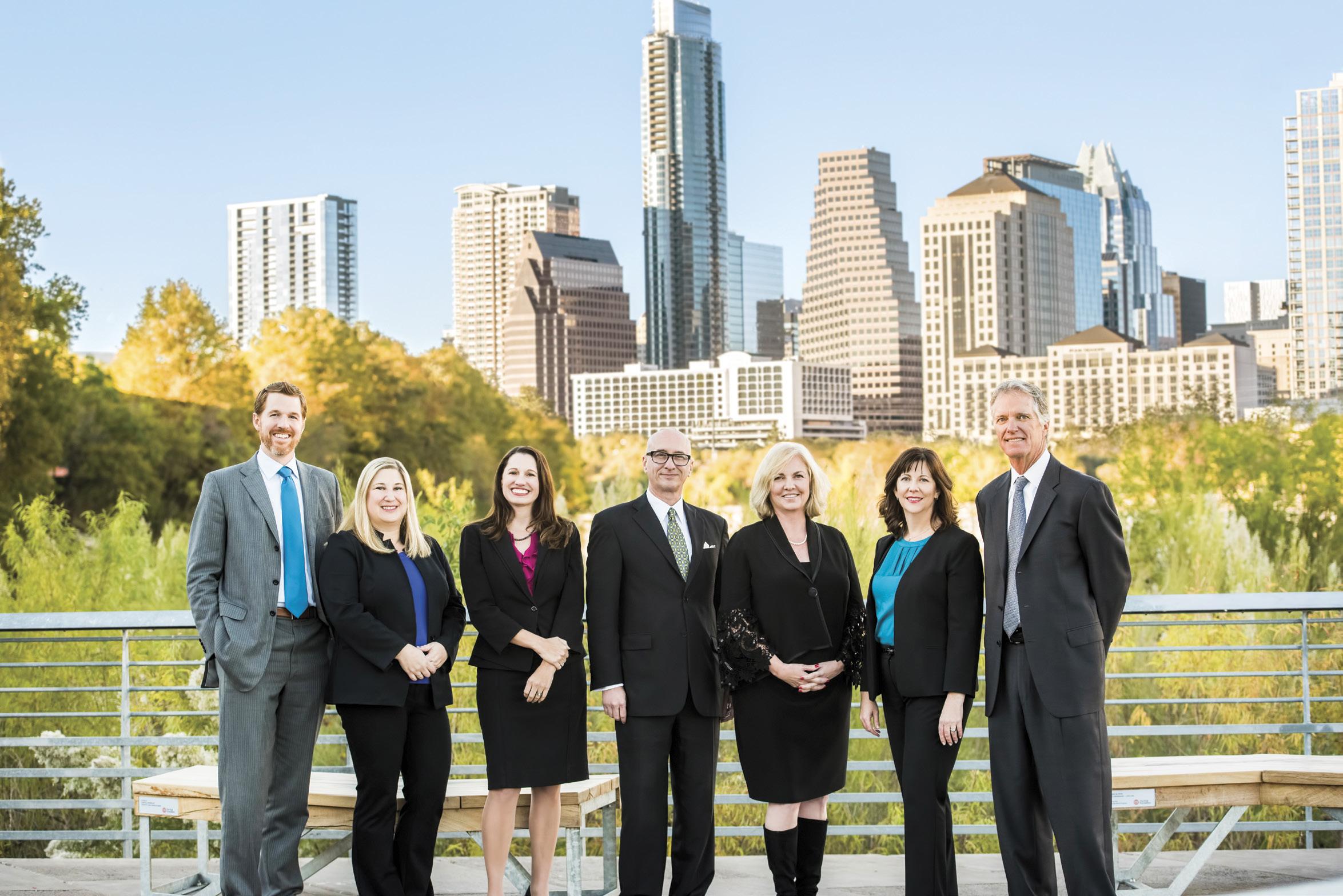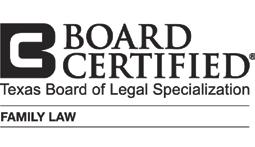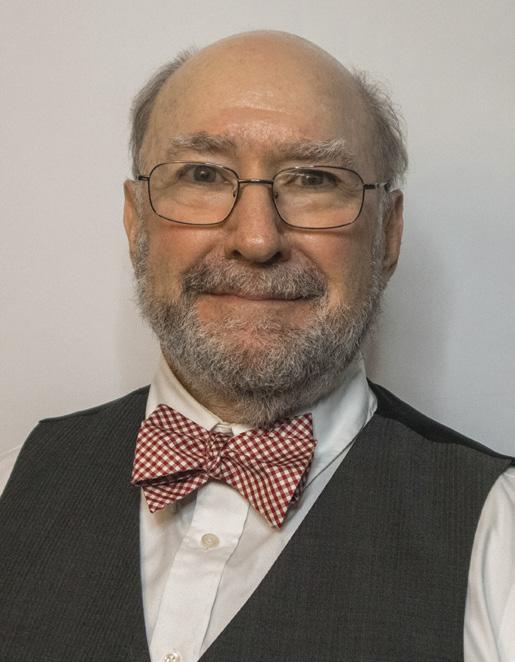Building Momentum for Upcoming Equity Summit
The Inaugural Equity Summit Is Scheduled for May 14, 2021
 BY CRAIG MOORE
BY CRAIG MOORE
Over the past year, the Austin Bar Association has hosted a variety of activities aimed at highlighting and promoting the need for more equity, diversity, and inclusion in the legal profession. The impetus to act in a meaningful way was shaped by our collective grief and outrage following the deaths of George Floyd, Breonna Taylor, and many others. The toxic rhetoric from our state and national leaders promoting racism and intolerance was also a motivating factor for us to do something. As lawyers, we should never sit on the sidelines and deliberately ignore acts of injustice. We decided to act.
On June 3, 2020, the Austin Bar released a public statement advising that it “unequivocally condemns racism in all forms,” and that it will “lead our legal community in the pursuit of justice for all people.” Following this statement, the Austin Bar launched the 21-Day Racial Equity Habit-Building Challenge. From July 1 through July 29 (21 business days), Austin Bar members who accepted this challenge received daily
assignments of articles, podcasts, or videos designed to increase their awareness and engagement of issues in racial equality. The public statement, the 21-Day curriculum, and a list of antiracism resources were posted on the Austin Bar’s website and are still available at austinbar.org/ anti-racist-resources.
Realizing the need to organize and pursue future programming, the Austin Bar formed the Equity Committee and announced the leadership team of Judge Maya Guerra Gamble, Judge George C. Thomas, former Texas Supreme Court Justice Craig Enoch, Cathy Garza, Mindy Gulati, Craig Moore, Ayeola Williams, Drew Williams, and Austin Bar President Kennon Wooten. Since then, more attorneys have joined and contributed to the committee’s efforts. Despite the challenges associated with the COVID-19 pandemic, members of the Equity Committee have hosted multiple events leading up to a day-long virtual Equity Summit scheduled for May 14, 2021. All of the events have been free and open to the public.
In October, the Equity Committee hosted a virtual
EQUITY SUMMIT
viewing party and discussion of the award-winning documentary “13th,“ directed by Ava DuVernay. The 13th Amendment to the U.S. Constitution abolished slavery in this country with one exception, as criminal punishment for a person that has been “duly convicted.” This documentary explored the links between slavery, racism, and the mass incarceration of African Americans since the Civil War. In November, the Equity Committee hosted a virtual book club discussion on “So
You Want to Talk about Race?” by Ijeoma Oluo. After taking a break for the holidays, the Equity Committee led another virtual book club discussion on “How to Be an Anti-Racist” by Ibram X. Kendi. The Equity Committee actively encouraged participants to purchase their books from Black Pearl Books, a Black-owned independent bookstore in Austin. The viewing party and book club discussions were facilitated by members of the Equity Com-
continued on page 8
austinbar.org APRIL 2021 | VOLUME 30, NUMBER 3
Fri. May 14, 2021 10 a.m. – 3 p.m. Register at austinbar.org to receive the Zoom link. Registration is free. Open to the public. All are invited to attend.


1,500.00 **** **** **** 4242 Amount Card Number NEW CASE Reference Trust Payment IOLTA Deposit $ POWERING PAYMENTS FOR THE LEGAL INDUSTRY The ability to accept payments online has become vital for all firms. When you need to get it right, trust LawPay's proven solution. As the industry standard in legal payments, LawPay is the only payment solution vetted and approved by all 50 state bar associations, 60+ local and specialty bars, the ABA, and the ALA. Developed specifically for the legal industry to ensure trust account compliance and deliver the most secure, PCI-compliant technology, LawPay is proud to be the preferred, long-term payment partner for more than 50,000 law firms. The easiest way to accept credit card and eCheck payments online. ACCEPT MORE PAYMENTS WITH LAWPAY 888-491-9328 | lawpay.com/austinbar LawPay is a registered agent of Wells Fargo Bank N.A., Concord, CA and Synovus Bank, Columbus, GA.
AU ST INL AW Y ER AL
INSID E
FEATURED ARTICLES
1 Building Momentum for Upcoming Equity Summit
The Inaugural Equity Summit Is Scheduled for May 14, 2021
6 Hon. Lora J. Livingston to Receive Jurisprudence Award from Anti-Defamation League of Austin
7 Seeking Nominations for Regina Rogoff, Professionalism Awards
9 Planning for Pets
What to Do on the Owner’s Incapacity or Death?

16 Lloyd C. Lochridge Inn of Court Accepting Applications
23 Texas Bar Foundation Recognizes Terry O. Tottenham
ONLINE
austinbar.org
NEWS & ANNOUNCEMENTS
Equity Committee Hosts Panel Discussion on April 9 History of Equity in the Austin Bar 1970 – 2020: So Much Progress… So Much to be Done
12 – 1:30 p.m. (Virtual), Register at austinbar.org
Austin Bar Nominating Committee Names Slate of Officer and Board Candidates
All Races are Currently Uncontested
UPCOMING EVENTS
APR 22 Cooking with the Judiciary
With Judges Nicholas Chu and Amy Clark Meachum
6 – 7 p.m.
Sponsored by the Lawyer Well-Being Committee. RSVP at austinbar.org.
CONNECTIONS
ONLINE
austinbar.org
EMAIL nancy@austinbar.org
MAIL Nancy Gray, managing editor Austin Bar Association 816 Congress Ave., Ste. 700 Austin, TX 78701-2665
SOCIAL LIKE facebook.com/austinbar
FOLLOW twitter.com/theaustinbar
WATCH vimeo.com/austinbar
STREAM @AustinBarAssociation
FOLLOW instagram.com/theaustinbar





TEXT austinbar to 313131 for up-to-date news + info Message & data rates may apply.
Most insurance companies think with their wallet. We also use our heart.
TLIE cares about its members. We support organizations that help them succeed and thrive. The BEST liability coverage for the BEST people. #DoGoodATX

CONTENTS
L
2021 | VOLUME 30, NUMBER 3 APRIL 2021 | AUSTINLAWYER 3
A
APRIL
Equity Committee Spotlight 12 Briefs 14 Be Well 18 Opening Statement 19 Third Court of Appeals Civil Update 20 Third Court of Appeals Criminal Update 21 Federal Civil Court Update 22 Criminal Court News 24 AYLA 26 Practice Pointers
DEPARTMENTS 10
FIND OUT MORE: TLIE.ORG or (512) 480-9074 3_62x3_62in_TLIE Ad Campaign 2020_AustinLawyer_113020v2.indd 4 12/1/20 11:52 AM
INTERESTED IN WRITING FOR AUSTIN LAWYER?















Contributing authors sought for inclusion in Austin Lawyer. Articles on various legal-related topics are considered for publication monthly. Please limit submissions to between 500 and 750 words. Send articles to Nancy Gray, Managing Editor, at nancy@austinbar.org. Submission is not a guarantee of publication.



AUSTINLAWYER







OFFICIAL PUBLICATION OF THE AUSTIN BAR ASSOCIATION
AUSTIN BAR ASSOCIATION
Kennon Wooten President

David Courreges President-Elect





Amanda Arriaga Secretary









Justice Chari Kelly Treasurer
D. Todd Smith Immediate Past President



AUSTIN YOUNG LAWYERS ASSOCIATION




David King President

Rachael Jones President-Elect

Blair Leake Treasurer















Sarah Harp Secretary
Sandy Bayne Immediate Past President
Austin Lawyer


©2021 Austin Bar Association; Austin Young Lawyers Association




EXECUTIVE OFFICES
712 W. 16th Street
Austin, TX 78701




Email: austinbar@austinbar.org
Website: austinbar.org
Ph: 512.472.0279 | Fax: 512.473.2720

















DeLaine Ward Executive Director
Nancy Gray Managing Editor
Debbie Kelly Director of AYLA
Jennifer Hopgood Co-Editor







Rachael Jones Co-Editor



EMPLOYERS
Foster delivers a full suite of immigration enterprise solutions customized to meet the needs of your organization.









INVESTORS & STARTUPS
We are experienced in resolving complex immigration problems while taking into account the realities of investors, start-ups and entrepreneurs.

INDIVIDUALS & FAMILIES
At Foster, we’re proud of our long history of service and advocacy on behalf of individuals and families.

Austin Lawyer (ISSN #10710353) is published monthly, except for July/August and December/January, at the annual rate of $10 membership dues by the Austin Bar Association and the Austin Young Lawyers Association, 712 W. 16th Street, Austin, TX 78701. Periodicals Postage Paid at Austin, Texas. POSTMASTER: Send address changes to Austin Lawyer, 712 W. 16th Street, Austin, TX 78701.























Austin Lawyer is an award-winning newsletter published 10 times a year for members of the Austin Bar Association. Its focus is on Austin Bar activities, policies, and decisions of the Austin Bar Board of Directors; legislation affecting Austin attorneys; and other issues impacting lawyers and the legal professionals. It also includes information on decisions from the U.S. Western District of Texas Federal Court and the Texas Third Court of Appeals, CLE opportunities, members’ and committees’ accomplishments, and various community and association activities.
The views, opinions, and content expressed in this publication are those of the author(s) or advertiser(s) and do not necessarily reflect the views or opinions of the Austin Bar Association membership, Austin Bar Association Board of Directors, or Austin Bar Association staff. As a matter of policy, the Austin Bar Association does not endorse any products, services, or programs, and any advertisement in this publication should not be construed as such an endorsement.
Contributions to Austin Lawyer are welcome, but the right is reserved to select and edit materials to be published. Please send all correspondence to the address listed below. For editorial guidelines, visit austinbar.org in the “About Us” tab.


PUBLISHED BY



Monarch Media & Consulting, Inc. Ph: 512.680.3989 | Fax: 866.328.7199
monarchmediainc.com





Advertising inquiries call 512.293.9277.

AUST INL AW Y ER AL AL Responsive. Experienced. Professional. Your Austin source for reliable U.S. and Global Immigration expertise. Serving Austin since 1999. 912 S Capital of Texas Hwy, Suite 450 Austin, TX 78746 www.fosterglobal.com Request a consultation: +1 512.852.4142
4 AUSTINLAWYER | APRIL 2021



















Hon. Lora J. Livingston to Receive Jurisprudence Award from Anti-Defamation League of Austin

The Honorable Lora J. Livingston will receive the Anti-Defamation League of Austin’s Jurisprudence Award at the ADL Austin’s Jurisprudence Virtual Event at noon on April 13, 2021. The Jurisprudence Award is presented to an outstanding member of the legal community who exhibits a commitment to equality, justice, fairness, and community service. The event will feature a moderated discussion with Dan Rather, one of the world’s bestknown journalists for much of the last half century. Rather has covered almost every important dateline of the last 60 years.
P.C. Later, she and S. Gail Parr formed a partnership and opened the law firm of Livingston & Parr. She was engaged in a general civil litigation practice with an emphasis on family law. She began her judicial service as an associate judge for the District Courts of Travis County, and after her successful election, Judge Livingston was sworn in as judge of the 261st District Court. Her judicial colleagues elected her to serve as the Local Administrative Judge. She is the first African American woman to serve on a district court in Travis County.
Judge Livingston has dedicated her legal career to promoting
Visit austin.adl.org to register. Email angelaatlas@adl.org, or call 713.385.1515 for more details.
Judge Livingston is a graduate of the UCLA School of Law. She began her legal career as a Reginald Heber Smith Community Lawyer Fellow assigned to the Legal Aid Society of Central Texas in Austin. After completion of the two-year fellowship program, she continued to work in the area of poverty law until she entered private practice with the law firm of Joel B. Bennett,

access to justice for all. She has served on the boards of the Texas Equal Access to Justice Foundation, Texas Access to Justice Commission, the National Association of IOLTA Programs, and the Texas Center for the Judiciary. She is a member of the National Bar Association and the National Association of Women Judges. She is a delegate to the House of Delegates of the American Bar Association and has served on the ABA Standing Committee on the Delivery of Legal Services, the
ABA Standing Committee on Legal Aid and Indigent Defendants (SCLAID), and the ABA Judicial Division. She has been active in the Austin Bar Association, the Austin Black Lawyers Association, and the Travis County Women Lawyers Association. She is also a proponent of pro bono activities and has served on the board of Volunteer Legal Services of Central Texas. She was instrumental in the establishment of the Travis County Self-Help Center for self-represented litigants, and her support for access-to-justice initiatives is unwavering.
Judge Livingston has received a number of awards, including the Joseph C. Parker, Jr. Diversity Award from the Austin Bar, the Attorney Award for Outstanding Achievement from the Travis County Women Lawyers Association, the Texas Access to Justice Commission Pro Bono Champion Award, the Texas Equal Access to Justice Foundation Harold F. Kleinman Award, the Texas Center for the Judiciary Exemplary
Judicial Faculty Award, the Lone Star Girl Scouts Council Women of Distinction Award, the Austin Independent School District Community Service Award, the Lotus Award from Asian Family Support Services, the Distinguished Service Award from the National Center for State Courts, and the Spirit of Excellence Award from the American Bar Association.
An active member of the Austin community, Judge Livingston has served on the boards of the Ann Richards School for Young Women Leaders, Capital Area Food Bank, Austin Symphony Orchestra, Austin Tenants Council, Central East Austin Community Organization, YMCA, Austin Area Urban League, and El Buen Samaritano. Judge Livingston is also a graduate of Leadership Austin. AUST INL AW Y ER AL AL
paperwork and have set in place new processes to protect the health and safety of you and your family upon home delivery.
Email | chris@appleleasing.com Phone | 512-653-3718 6 AUSTINLAWYER | APRIL 2021
-Chris Andre
13 ADL AUSTIN’S JURISPRUDENCE VIRTUAL EVENT
p.m.
austin.adl.org
Judge Livingston is the first African American woman to serve on a district court in Travis County.
APRIL
12
Register at
Hon. Lora J. Livingston
Seeking Nominations for Regina Rogoff, Professionalism Awards
The Austin Bar Association is currently seeking nominations for two awards, the Regina Rogoff Award and the Professionalism Award.
T he Regina Rogoff Award honors an attorney who has demonstrated outstanding service in the public/nonprofit sector. This annual award serves as a lasting tribute to the career achievements of Regina Rogoff, executive director of
Legal Aid of Central Texas. Rogoff helped provide legal services in Texas since she started at LACT as a VISTA volunteer in 1973.

Presented jointly by the Austin Bar and the Texas Center for Legal Ethics and Professionalism, the Professionalism Award honors a lawyer who best exemplifies, by


conduct and character, truly professional traits that others in the bar seek to emulate, and whom all in the bar admire. Those selected for the award will truly be “role models” for the bar, particularly younger or less experienced lawyers.
Send nominations for both awards to DeLaine Ward, at
delaine@austinbar.org, by April 15. To see a list of past award winners, go to austinbar.org/ foundation/awards. AUST
Collaborative Divorce. Helping couples problem solve their way through divorce. 7500 Rialto Blvd, Bldg One, Suite 250, Austin, Texas 78735 whitten-law.com | info@whitten-law.com | (512) 478-1011 Adoption Grandparent or Non-parent Rights Collaborative Law High-Asset Divorce Modifications of Custody, Possession & Support Family Law Specialist Tim Whitten has practiced in family law since 1992. He has been certified as a Family Law Specialist by the Texas Board of Legal Specialization. *Kimberly A. Edgington kim@whitten-law.com Specialization APRIL 2021 | AUSTINLAWYER 7 Helping clients manage significant wealth ubs.com/fa/mattrappaport Matt Rappaport, CDFA®, CEPA® Financial Advisor 512-542-7507 matt.rappaport@ubs.com UBS Financial Services Inc. 98 San Jacinto Boulevard Suite 600 Austin, TX 78701 As a firm providing wealth management services to clients, UBS Financial Services Inc. offers investment advisory services in its capacity as an SEC-registered investment adviser and brokerage services in its capacity as an SEC-registered broker-dealer. Investment advisory services and brokerage services are separate and distinct, differ in material ways and are governed by different laws and separate arrangements. It is important that clients understand the ways in which we conduct business, that they carefully read the agreements and disclosures that we provide to them about the products or services we offer. For more information, please review the PDF document at ubs.com/relationshipsummary. © UBS 2020. All rights reserved. UBS Financial Services Inc. is a subsidiary of UBS AG. Member FINRA/SIPC. CJ-UBS-1412753402 Exp.: 12/31/2021
INL AW Y ER AL AL
To see a list of past award winners, go to austinbar.org/foundation/awards. APRIL
15 REGINA ROGOFF & PROFESSIONALISM AWARD NOMINATIONS DUE 5 p.m. Email delaine@austinbar.org
Austin Bar Association Inaugural Equity Summit
“Paving
a Path to a More Equitable Community: Examining Equity with a Spotlight on Race”
continued from cover
FRIDAY, MAY 14, 2021
10:00 A.M. – 3:00 P.M.
Remote/Zoom
TIME
10:00–10:10 a.m.
10:10–10:15 a.m.
10:15–10:25 a.m.
10:25–11:10 a.m.
PROGRAM
Welcome & Opening Remarks
y Kennon Wooten (Welcome)
y Judge Maya Guerra Gamble (Opening Remarks)
Introduction and Reading of Equity Statement
y David Holmes
Mindfulness Exercise
y Diana Reinhart
Implicit Bias: What is it, How Can it Affect Your Practice and Cases, and How Does it Give Rise to Ethical Obligations for Lawyers?
y Mindy Gulati (moderator/panelist)
y Manuel Quinto-Pozos (panelist)
11:10–11:30 a.m. BREAK
11:30 a.m. –12:00 p.m.
mittee and included a lively and engaging discussion among the attendees. The Equity Committee continued its programming on March 9 with a virtual discussion of the podcast “This Land,” moderated by Mishell Kneeland. This podcast covered the historical aspects of indigenous relocation, common misconceptions about life for citizens of the tribes throughout the United States, tribal governments, and the laws that impact indigenous tribes and current U.S. citizens.
On April 9, the committee continues its programming by hosting a virtual CLE panel discussion on the history of equity in the Austin Bar, with confirmed panelists including former State Bar President Richard Peña, Judge Todd Wong, and UT Law Professor/Trial Advocacy Director Tracy McCormack. Registration for this event is now available at austinbar.org.
The final event of the year will be the virtual Austin Bar Inaugural Equity Summit on May 14 from 10 a.m. to 3 p.m. Registration is free and open to the public. Register at austinbar. org to receive the Zoom link.
The program will begin with an introduction by Austin Bar President Kennon Wooten and
12:00–12:45 p.m.
Viewing: ATX Together: Roots of Racism in Austin
y Judy Maggio
y Former Austin City Councilmember Ora Houston
y Dr. Kevin Foster, University of Texas

y Yasmine Smith
Discussion: Institutional Racism Embedded in the Austin Land Code – Lasting Impacts and Potential Remedies
y Brion Oaks (moderator/panelist)
y Former Austin City Councilmember Ora Houston (panelist)
y Former AISD Trustee Paul Saldaña (panelist)
12:45–1:45 p.m.
History and Implementation of the Tim Cole Act: Injustice as a Catalyst for Justice
y Mike Ware (moderator/panelist)
y Karen Kennard (panelist)
y Former Chief Justice Wallace B. Jefferson (panelist)
1:45–2:00 p.m.
2:00–2:45 p.m.
2:45–2:55 p.m.
BREAK
Pro Bono: Getting Proximate and Reducing the Justice Gap
y Neal Falgoust (moderator/panelist)
y Alisa De Luna (panelist)
y Edna Yang, American Gateways (panelist)
Call to Action: Leveraging Power as Attorneys to Create a More Equitable Community
y Craig Moore
y Mindy Gulati
2:55–3:00 p.m. Closing Remarks
y Ayeola Williams
Equity Committee Chair Judge Maya Guerra Gamble. Following the introduction, Equity Committee member David Holmes will read the Austin Bar’s Equity Statement and then Diana Reinhart will lead a brief session on mindfulness. Equity Committee members Mindy Gulati and Neal Falgoust will moderate panel discussions on implicit bias and pro bono efforts to reduce the justice gap.
Confirmed speakers for the Eq-
uity Summit include former Texas Supreme Court Chief Justice Wallace Jefferson, former Austin City Councilmember Ora Houston, community advocate and former AISD Trustee Paul Saldaña, former Austin City Attorney and Greenberg Traurig Shareholder
Karen Kennard, Co-founder and Executive Director of the Innocence Project of Texas Mike Ware, Volunteer Legal Services of Central Texas Executive Director
Alisa De Luna, Deats, Durst and
A genda as of 3/19/2021
Owen Partner Manuel Quinto-Pozos, City of Austin Chief Equity Officer Brion Oaks, and American Gateways Assistant Executive Director Edna Yang.
The Austin Bar’s efforts to achieve racial equity and dismantle the systems created by institutional racism will take much longer than one year. As such, the Equity Committee will continue its work and plans to make the Equity Summit an annual event. AUST INL AW Y ER
8 AUSTINLAWYER | APRIL 2021
Craig Moore is an Assistant District Attorney for Travis County. He currently serves on the board of directors for the Austin Bar Association and is a member of the leadership team for the Austin Bar’s Equity Committee.
AL AL
Planning for Pets
What to Do on the Owner’s Incapacity or Death?
BY MELISSA DONAVAN, CELA

If you are anything like me, your parents have come to accept your fur-babies as their four-legged grandchildren. Unfortunately, the way pet-lovers view their pets and the way the law treats them are not necessarily congruent with one another. In the eyes of the law, pets are tangible personal property a “chattel.” But that doesn’t mean we want them to be treated like the furniture. These days, one of our clients’ biggest estate planning concerns is how their pets are going to be cared for if something happens to them.
First, what happens if the client becomes incapacitated? Without planning, the answer is, “Who knows?” Pets become another asset of the ward’s estate, and an expensive one at that. The guardian may need to dispose of the pet due to that expense or the impracticality of housing it. If there is a financial power of attorney, the agent can use the owner’s assets for pet care. If the owner had, instead, a revocable living trust, then specific provisions could be set out in the trust for the pet’s care, which could range from relying on friends and family for minimal cost, to utilizing available organizations such as Austin Pets Alive or the Austin
Humane Society. Under Texas law, it is even possible to create a Pet Trust (see below) to ensure a more “Ritz-Carlton experience” for your pet.

Second, at the death, without a will, it will be vague as to who can legally care for the pet; a shelter may be the only practical option. With a will or living trust, the easiest option is to name family or friends as the new caretaker. With this method, they are simply relying on that person to keep the pet out of the kindness of their heart. However, if that person cannot continue to care for the pet, there is nothing preventing them from giving your pet away, dropping it off at a shelter, or euthanizing it. Your client may want to consider providing some financial assistance to help with pet expenses. Again, clients need to keep in mind that once the person has the money and the pet, there is no assurance that the pet will be cared for as the owner had hoped.
Another option is utilizing the services of organizations like Stevenson Animal Life-Care Center at Texas A&M. This and other groups, for a specified endowment, will care for the pet for its natural lifetime. For those who may not have individuals to care
for their pets, these are good alternatives. This is something that can be accomplished either in an estate plan, or by contracting with the organization directly. Most times, it is best to do both.
Finally, more people are doing what we call Pet Trusts these days. Texas Property Code Section 112.037 states, “A trust may be created to provide for the care of an animal … if the trust terminates on the death of the animal.” This provision gives the pet owner the most control over a pet’s care. Much like any other trust, the owner places assets into a trust, either during his or her lifetime or through a testamentary transfer, names a trustee, and directs how the money is used only for the care of their pets as opposed to a person. Setting up a Pet Trust allows the grantor the ability to clearly set forth his or her wishes for who will have custody of the pet, including where the pet will go if the original caretaker becomes incapacitated or passes away. The grantor can dictate how the trust money is spent to provide for food, shelter, veterinary costs, grooming, boarding, and even burial or cremation arrangements. Finally, the grantor will direct where the remaining funds go when the
pet, or pets, have passed away. If you are working with clients or you want to set up a Pet Trust yourself, keep in mind that you want to calculate the pet’s life expectancy as well as the cost to care for the pet annually, in order to make sure there are sufficient funds to provide the level of care the grantor desires.
Knowing how to advise clients on these options fulfills that desire. Maybe pets are just property, but they may be the most loved property your clients have. Help them make sure those fur-babies continue to be loved when your clients are either incapacitated or gone. AUST INL AW Y ER AL AL
APRIL 2021 | AUSTINLAWYER 9
Melissa Donavan is a Certified Elder Law Attorney and Director of Elder Law and Special Needs Planning at The Wiewel Law Firm.
To Retain Minority Talent, Combat Implicit Biases
BY DAVID HOLMES
Recent times have seen an increased emphasis on finding ways to improve racial and ethnic diversity in the legal profession, and in the wake of the protests of last summer, many law firms spoke out on the importance of diversity and made commitments to improve. However, minorities remain underrepresented in most law firms, due in large part to an inability to retain minority lawyers. According to a recent joint study by the National Association for Law Placement Foundation and Major, Lindsey & Africa, minority lawyers are voluntarily leaving their firms at higher rates than their white counterparts.1 Not only are these lawyers leaving their firms at higher rates than white associates, but their departures are also more likely to be characterized by their former employer as a “desirable” loss, indicating an increased failure to mesh between firm and associate. Minority attrition is greater at larger firms (500+ attorneys), and the gap between minority departures and
non-minority departures starts out close in the first year but subsequently widens year to year. In most cases, this increased attrition is likely related to workplace environments that are less welcoming to minority associates. Regardless of any intentional actions a firm might take in the name of improving diversity, the continued effects of unconscious biases remain a huge hurdle in improving those environments.
Unconscious or implicit bias can be defined as “the process of associating stereotypes or attitudes toward categories of people without our conscious awareness.”2 These biases can lead us to differentiate in our actions towards and evaluations of others. We can suffer from both “affinity bias,” when pre-existing beliefs about a group’s positive attributes lead one to notice those attributes in members of that group, and “confirmation bias,” when pre-existing beliefs about negative attributes make you more likely to notice those negative traits in members of a group. Everyone holds implicit biases they are shaped and developed over the course of your lifetime from very early on and can be influenced by everything from your family and friends to movies, music, books, and other aspects of culture. Often, these biases operate at the subconscious level without us ever
actually being aware that we are being affected by these thoughts. Accordingly, it’s easy to see how such biases can operate to create a workplace that is less inclusive of minority attorneys in spite of legitimate efforts on behalf of a firm. This is why it is incumbent upon each individual attorney to evaluate their own implicit biases in hopes of understanding how their pre-held beliefs might be affecting those in the workplace around them. With that in mind, here are three steps you can take to combat implicit bias.
STEP 1: ACKNOWLEDGE BIAS
The first step is the simplest: Admit biases exist, and that you have them. And that’s ok everyone has them! Given the wide variation in racial diversity across America (even just from neighborhood to neighborhood), as well as the prevalence of racial stereotypes portrayed in various forms of media and pop culture, the formation of implicit racial biases is understandable and perhaps expected. It does no one including yourself any good to pretend biases don’t exist. We can’t combat a problem that we can’t admit is a problem.
STEP 2: ACT WITH AWARENESS
Once we’ve acknowledged our biases, the next step is to act
with awareness of that bias. This requires actively questioning ourselves and our responses when engaging with those from groups different from our own. Ask yourself some of these questions:
“Did I assume that person’s intentions?”
“Did I act differently from the last time I was in a similar situation? If so, why?”
“Am I possibly missing information that might be relevant to understanding what is happening?”
“Am I making decisions based on assumptions I am not certain of?”
STEP 3: LISTEN & ADJUST
Well-meaning attorneys may dutifully take to steps 1 and 2 and still feel as though they aren’t seeing positive results. However, when it comes to inclusivity, remember that there is no silver bullet for knowing how to engage with and respond to people from any particular group. No racial group is a monolith, and what is welcoming for one member may not serve the same benefit for another. Be attentive to how your interactions are perceived and adjust your practices as needed.
Increased retention of minority lawyers has a snowball effect, making workplaces that are more diverse and welcoming to other minority lawyers over time. If every attorney takes it upon himself or herself to actively combat implicit biases, we can improve our profession one incremental understanding at a time.

Footnotes
1. https://www.law.com/ americanlawyer/2020/09/30/ starved-of-professionaldevelopment-minority-associatesare-fleeing-big-firms-report-finds/
2. https://www.americanbar.org/ groups/diversity/disabilityrights/ resources/implicit_bias/.
EQUITY COMMITTEE SPOTLIGHT 10 AUSTINLAWYER | APRIL 2021
AUST INL AW Y ER AL AL
David Holmes is an associate at Walsh Gallegos Treviño Russo & Kyle, where he practices school law. He is a member of the Austin Black Lawyers Association and the Austin Bar Association’s Equity Committee.
Often, these biases operate at the subconscious level without us ever actually being aware that we are being affected by these thoughts. Accordingly, it’s easy to see how such biases can operate to create a workplace that is less inclusive of minority attorneys in spite of legitimate efforts on behalf of a firm.

NEW MEMBERS
The Austin Bar welcomes the following new members:
Emily Casey
Mark Harbin
John Hubbard
Jacob Jones
Brett Miller
Elizabeth Rettinger
Christian Rice
Megan Simank
MOVING ON UP
� P. Lindley Bain has been elected managing partner of GoransonBain Ausley. Bain will become GoransonBain Ausley’s third managing partner, and at age 40, its youngest. As the firm’s second female managing partner, she builds on a history of strong representation of women leaders. Her mother, Angie Bain, was a founding partner of GoransonBain in 1987. Of the firm’s 25 partners, 14 are female, and 61% of equity partners are female. Bain joined GoransonBain Ausley in 2007 and was named a partner in 2014.

� Locke Lord’s Cynthia Bast, chair of the firm’s affordable housing and community development section, has been named Austin office managing partner. Bast is a member and former co-chair of Locke Lord’s board of directors and a nationally recognized affordable housing and community development finance lawyer. She advises developers, investors, financial institutions, and governmental agencies on complex affordable housing transactions and has helped shape Texas laws and regulations impacting the industry. Bast joins Dallas office managing partner
 Elizabeth Mack and Houston
Elizabeth Mack and Houston
HELPING REDUCE EXPOSURE TO RISKS.
A subsidiary of Briggs & Veselka, Pathway Forensics helps protect your orgranization from both internal and external threats through our digital forensics and cybersecurity services. Our experts have extensive courtroom experience and can provide neutral, third-party insights. Typical cases involve business and employment disputes, compliance and discovery requests in litigation and government investigation, and fraud and criminal investigations for clients, including Fortune 500 corporations, law firms, and private companies.
office managing partner Laura Edrington, marking the first time in the firm’s history that all of its Texas offices are led by women.
� Fleckman & McGlynn, is pleased to announce that Andrew McKeon has become a partner in the firm. He represents the firm’s clients in dispute resolution and litigation matters.
To learn how our experienced professionals can meet your unique needs and challenges, contact one of our senior leaders:
BRIEFS
www.pathwayforensics.com 713-401-3380 Digital Forensics | eDiscovery | Cybersecurity blove@bvccpa.com
Cybersecurity Digital Forensics Expert Witness Testimony eDiscovery Halen Phan
Noel Kersh Managing Principal nkersh@pathwayforensics.com
Director of Forensics & Operations hphan@pathwayforensics.com Michael Trpkosh Director of Cybersecurity michael.trpkosh@ pathwayforensics.com
12 AUSTINLAWYER | APRIL 2021
ABOVE: (from left): Bain, Bast
Celebrating its 20th anniversary!
Selected by Who’s Who Legal as one of four leading mediation firms in North America

Highlighting Eric Galton, Greg Bourgeois and Ben Cunningham and naming Eric Galton as one of its eight Thought Leaders in North America
Over 500 successful virtual mediations since March 2020 and Zooming into 2021
Eric Galton
Greg Bourgeois
Ben Cunningham
Kimberlee Kovach
David Moore
Fred Hawkins
Lynn Rubinett
Lucius Bunton
Kenneth Davison
Bill Fowler
Book Talk: Professor McCormack’s Prescriptions for Well-Being and Effective Leadership
BY JENNIFER HOPGOOD
Generally, would you comment on how the relationship between being a good leader is tied or connected to being healthy; i.e., why must a good leader also focus on cultivating general mental health and well-being?
Self-compassion is critical to our personal ability to try, fail, and grow. It’s also critical to our society. As we struggle to value our cultural and social differences, to be genuinely inclusive, self-compassion sits at the center of those efforts.

HOPGOOD: Professor Tracy W. McCormack, welcome. The Travis County Women Lawyers Association (TCWLA) started a book club last year, focusing on books and discussions centered on leadership. You graciously presented last year on one of our book picks, and at that meeting you mentioned your top book recommendation to lawyers has been Self-Compassion by UT Psychology professor Kristin Neff. You commented at the time that in order to be a good leader, a person must have a basis in general mental health and that self-compassion is an essential element of well-being. TCWLA is excited you will be discussing Self-Compassion at the last book club meeting of the 2020-21 year, on Wed. May 5, 2021. This book club will be open to Austin Bar members, in recognition of the Lawyer Well-Being Committee’s initiatives and efforts to increase wellness and well-being of the entire Austin Bar membership.
MCCORMACK: The old saying “actions speak louder than words” is true. As leaders we don’t just lead on the substance, we model the behaviors and culture we seek to instill in our group or organization. If I am sending and responding to emails at midnight and all weekend, then no matter what I may say about work-life balance I am not showing that I value it. I create the unspoken expectation that to excel in my group you should behave as I do. Compassion is no different. If I want my organization to be compassionate and show it to others, I have to model that behavior even to myself.
HOPGOOD: Tell us why you love this book, Self-Compassion.
MCCORMACK: It’s not a message common to lawyers especially “older” female lawyers. For me, I equated self-compassion with being too easy on myself, the antithesis of being a trial lawyer or Black female law professor. The book helps explain why we develop negative self-chatter and how harmful it is to real growth and development. It is counter-intuitive, but we need self-compassion to be able to grow and reach our full potential. I have developed the phrase, “If you wouldn’t say it to a friend, don’t say it to yourself.” It helps me quiet the inner critic who only sees my failings and weaknesses and instead encourages me to do and be better.
HOPGOOD: Why is self-compassion important?
MCCORMACK: It is critical to our personal ability to try, fail, and grow. It’s also critical to our society. As we struggle to value our cultural and social differences, to be genuinely inclusive, self-compassion sits at the center of those efforts. Self-compassion is what allows us to see ourselves as we really are flaws included and still find space to forgive our failings and keep growing. Without the ability to see ourselves, we continue to use our internal and external coping mechanisms to prop up our egos because we can’t face the truth we have to find someone to denigrate in order to make ourselves feel better. So imagine our society if I don’t have to be “better” than you, because that’s the only way to feel ok with myself. It’s so much easier to judge and “cancel” someone than to understand them, to be empathetic and compassionate towards them. If I can become more compassionate towards myself, I might be able to extend that same loving kindness to others.
HOPGOOD: How can lawyers incorporate the principles found in the book into their practice and interactions with clients, opposing counsel, and co-workers and colleagues?
MCCORMACK: When we are unhappy with ourselves, we generate a lot of negative thought and energy that gets directed back at our staff, opposing counsel, clients, friends, partners, etc. We search to find ways to make ourselves feel better through our possessions and status. When we are content with ourselves, we are easier to be around! For me, it’s always easier to be compassionate with others first. It’s harder to look inward and ask why we are being so competitive or disagreeable with others self-compassions allows us to do that. So if we really want to be successful in our practices and our lives, we need to develop self-compassion. Our work world is a small micro-

BE WELL
14 AUSTINLAWYER | APRIL 2021
Jennifer Hopgood is an assistant county attorney at the Travis County Attorney’s Office. She is co-editor-in-chief of Austin Lawyer
cosm of our culture at large. We can begin by being empathetic putting ourselves into the shoes of others, recognizing they just want to be valued, heard, respected, and appreciated just like we do. We can show compassion. We can recognize that they may be stressed, unhappy, frustrated, overly self-critical and that they exhibit bad behavior the same way we do when we are in that position. Once we realize we all have the same basic needs, we are less opponents and more people trying to share a planet or solve a specific legal problem.
HOPGOOD: What other thoughts and tips would you like to share with Austin Bar members specifically regarding the book and the concept of self-compassion, and more broadly about wellness and well-being generally?
MCCORMACK: Practicing law is hard and stressful. We tend to be competitive, perfectionist people. We have been trained in the law, we were not trained in wellness. Our time away from work has dwindled with the advent of technology that keeps us constantly connected. We have to work harder to create balance and maintain it. I’ll be the first to say that I am really bad at it. I find these books and resources because I need them! I want to provide students and lawyers with ways not just to cope but to thrive as lawyers. We are each responsible for justice, that takes an extraordinary amount of energy, focus, passion, and creativity. Wellness helps us harness that energy and focus and fuels our passion and creativity. It helps us recharge so that we can practice another day.
TCWLA Leadership Book Club
SELF-COMPASSION: The Proven Power of Being Kind to Yourself
 BY KRISTIN NEFF, PH.D.
BY KRISTIN NEFF, PH.D.
ABOUT THE BOOK:
Self-Compassion: The Proven Power of Being
The Travis County Women Lawyers’ Association (TCWLA) Leadership Book Club’s discussion on Self-Compassion will be on Wed., May 5, 2021 at noon, in conjunction with the Austin Bar Lawyer Well-Being Committee. Alisa Holahan will moderate the discussion with Professor Tracy W. McCormack. The event will be free to TCWLA and Austin Bar and AYLA members. Please join us for this important discussion about wellness, well-being, and self-compassion! Register on the events calendar at tcwla.org.
Professor Tracy W. McCormack is a senior lecturer and Director of Advocacy at the UT School of Law.

Alisa Holahan is a law librarian and lecturer at the Tarlton Law Library at the UT Law School.

Jennifer Hopgood, assistant county attorney at the Travis County Attorney’s Office, started the TCWLA book club with her colleagues Sherine Thomas and Leslie Dippel.
Kind to Yourself by Kristin Neff, Ph.D., discusses the benefits of treating yourself with kindness and understanding during difficult times. Dr. Neff, an associate professor at The University of Texas at Austin and an expert on self-compassion, employs empirical research, personal anecdotes, and helpful exercises to explain what self-compassion is, its many benefits, and how we can use self-compassion to improve our quality of life and reach our full potential. Self-compassion involves relating to our own suffering in a caring and supportive way. Dr. Neff describes self-compassion as treating yourself the way you would treat a good friend. She breaks down self-compassion into three core components: self-kindness, a recognition of our shared humanity, and mindfulness. Dr. Neff describes the many benefits of self-compassion, including emotional resilience, freedom from dependence on self-esteem, and greater motivation and personal growth. She also addresses the positive impact of self-compassion on the way we relate to others. Self-compassion, explains Dr. Neff, “provides an island of calm, a refuge from the stormy seas of endless positive and negative self-judgment, so that we can finally stop asking, ‘Am I as good as they are? Am I good enough?’”
APRIL 2021 | AUSTINLAWYER 15
AUST INL AW Y ER AL AL
McCormack Holahan
Lloyd C. Lochridge Inn of Court Accepting Applications
The Lloyd C. Lochridge Inn of Court is now accepting applications for the 2021-22 Inn year. The Lochridge Inn meets monthly from September to April and fosters dialogue on legal issues, the art and science of trial advocacy, and discussion about high-profile cases. Applications are welcome from
any practicing litigation attorney or judge. Membership is limited to the number of available openings. Successful applicants are admitted as Associates (licensed less than 10 years), or Barristers (licensed 10 to 20 years).

To apply, submit a letter stating your interest in joining the Inn, a résumé, and two letters of recommendation from the legal commu-

nity by May 28, 2021. Please email all application documents to Ryan Botkin at ryan@wittliffcutter.com
Questions? Contact Botkin by email or at 512.960.4730.

16 AUSTINLAWYER | APRIL 2021 Up to $75,000 to improve your home for sale. Zero upfront costs and no interest. Let me sell your home faster for a higher price. Contact me today to learn more. Leslie Breeland Realtor, JD, GRI, CLHMS SEED Property Group 512.826.8430 leslie@seedpropertygroup.com seedpropertygroup.com
Leslie Breeland is a real estate agent affiliated with Compass. Compass is a licensed real estate broker and abides by federal, state and local laws. Equal Housing Opportunity.
AUST INL AW Y ER AL AL








APRIL 2021 | AUSTINLAWYER 17 LAW FIRM LLP
Emphasis at the End Using Placement and Subordination
BY WAYNE SCHIESS, TEXAS LAW, LEGALWRITING.NET
Acriminal trial has ended and you’re at the penalty phase. If you’re Terry Chima’s defense lawyer, which would you rather hear the judge say?
1. Terry Chima, I believe that you are genuinely sorry and sincerely committed to being a productive member of society, but the crime you committed warrants a significant punishment.
2. Terry Chima, the crime you committed warrants a significant punishment, but I believe that you are genuinely sorry and sincerely committed to being a productive member of society.1
reader and receives extra punch. “End sentences with a bang, not a whimper,” according to Joe Glaser, the author of Understanding Style 2 And the writing expert David Lambuth says that “the end is emphatic because it makes the last impression. What we hear last is usually the most vivid to us.”3
Ending placement is the key difference in examples 1 and 2. As the defense lawyer, when the sentence ends with “warrants significant punishment,” I get a bad feeling in my stomach. But if the statement ends with “sincerely committed to being a productive member of society,” my hopes for a lighter penalty rise.
Here’s another example. Which sentence suggests that the writer is more peeved with the judge?
3. Although the plaintiff’s lawyer lied about his client’s injuries, the judge did not sanction him.
4. Although the judge did not sanction the plaintiff’s lawyer, the plaintiff’s lawyer lied about his client’s injuries.
ter, before, since, until, when, whenever, and while but when used for emphasis, the most common subordinating adverbs are although, because, despite, even though, and though.
Most readers believe that example 2 is more favorable to the defense, inferring that it suggests a shorter, less drastic penalty, while example 2 implies a longer, harsher one. But why? It’s because of placement.
PLACEMENT
Most writing experts believe that the end of a sentence is a place of emphasis. The concept stated at the end stays with the

It’s subtle, but most readers perceive example 3 to be expressing frustration with the judge and example 4 to be expressing frustration with the plaintiff’s lawyer. The difference arises from subordination. As Bryan Garner put it: “With subordination, the phrasing immediately shows that one clause is more important than the other. You’re amplifying the one and diminishing the other.”4
SUBORDINATION
As a sentence structure, subordination uses two clauses: a dependent clause that begins with a subordinating adverb, and a main clause. Some subordinating adverbs have to do with time af-
Although subordination can occur before or after the main clause, using subordination for emphasis typically arises from placing the idea to be de-emphasized in an opening, subordinated clause, and the idea to be emphasized in an ending, main clause.
From the previous example: The beginning subordinated clause is Although the plaintiff’s lawyer lied about his client’s injuries, and the ending main clause is the judge did not sanction him. Thus, the theory of emphasis through subordination goes like this: Typical readers give
• reduced emphasis to beginning, subordinated clauses,
• extra emphasis to main clauses, and
• extra emphasis at the end of a sentence.
So when you have two ideas
to express, and you’d like to emphasize one, the recommendation is to begin the sentence with a subordinated clause containing the idea you want to downplay, and end the sentence with a main clause containing the idea you want to emphasize.
Even though subordination isn’t a magic trick, it can produce subtle emphasis in a sentence.
Footnotes
1. Adapted from Patrick Barry, Good With Words: Writing and Editing 33 (2019).
2. Joe Glaser, Understanding Style: Practical Ways to Improve Your Writing 190 (2010).
3. David Lambuth, The Golden Book on Writing 26 (2d ed. 1983).
4. Bryan A. Garner, LawProse Lesson #238: Are you coordinated or subordinated? (Nov. 2, 2019), http:// www.lawprose.org/lawproselesson-238-are-you-coordinated-orsubordinated/
OPENING STATEMENT 18 AUSTINLAWYER | APRIL 2021
AUST INL AW Y ER AL AL
Even though subordination isn’t a magic trick, it can produce subtle emphasis in a sentence.
Most writing experts believe that the end of a sentence is a place of emphasis. The concept stated at the end stays with the reader and receives extra punch.
The following are summaries of selected civil opinions issued by the Third Court of Appeals during February 2021. The summaries are an overview; please review the entire opinions. Subsequent histories are current as of March 2, 2021.

MEDICAL LIABILITY ACT:
Court construes “emergency medical care” provision and affirms summary judgment for physicians.
Morris v. Piparia, No. 03-1900473-CV (Tex. App. Austin Feb. 10, 2021, no pet. h.). After a C-section, Morris experienced hemorrhaging that continued for three hours before appellees performed a corrective procedure. Morris sued for the resulting injuries caused by the prolonged bleeding. Appellees contended the care provided during the three hours constituted “emergency medical care” under the Texas Medical Liability Act, Texas Civil Practice & Remedies Code § 74.001(a)(7), triggering the “willful and wanton” standard of proof. The trial court granted summary judgment for Appellees. The Act’s definition of “emergency medical care” excludes medical treatment occurring after a patient is stabilized or treatment that is unrelated to the original medical emergency. The court of appeals rejected Morris’s argument that a patient must present

at the hospital with a medical emergency to constitute “emergency medical care.” According to the court, a patient can present with no emergency but develop an emergency during treatment, thus triggering the heightened standard. The court affirmed.
ADMINISTRATIVE LAW: Court applies the judicial non-intervention doctrine to association member lawsuit. Gordon v. South Tex. Youth Soccer Assoc., Inc., No. 03-19-00129-CV (Tex. App Austin Feb. 19, 2021, no pet. h.). STYCA suspended Gordon, a licensed referee, for aggressive behavior. Gordon sued for declaratory relief. STYCA then instituted its internal grievance process, found that Gordon violated provisions in the administrative handbook, and suspended him for a year. Gordon did not pursue any of the available grievance procedures. The trial court granted STYCA’s motion to dismiss for failure to exhaust administrative remedies. According to the court of appeals, under the judicial nonintervention doctrine, members of a voluntary association must exhaust administrative remedies before filing suit. Because Gordon did not pursue any administrative remedy, the trial court properly dismissed. The court affirmed.
TORT CLAIMS ACT: Court rejects plaintiff’s effort to recast premises defect as a use-of-property claim.
City of Austin v. Credeur, No. 0319-00358-CV (Tex. App. Austin Feb. 11, 2021, no pet. h.) (mem. op.). Credeur was injured when she stepped off a sidewalk onto a cement block and an improperly sealed water valve cover. Credeur alleged a waiver of immunity for claims arising out of a condition or use of tangible personal property or real property. The trial court denied City’s plea to the jurisdiction. The court of appeals observed that Credeur’s slip-andfall allegations are a premises defect claim, not a use of property claim. The court further concluded that the alleged defect was not a special defect. Credeur stepped off the sidewalk and proceeded through an area not intended for pedestrian use. Thus, the defect did not pose a danger to an ordinary user of the sidewalk. Finally, the court concluded City had no actual knowledge of the condition. City’s evidence showed no reports of injuries or potential danger in the area. The court reversed and rendered.
ARBITRATION: Mere reference to arbitration is not an agreement to arbitrate.
Mainthia Technologies, Inc. v. Recruiting Force, LLC, No. 0320-00402-CV (Tex. App. Austin Feb. 12, 2021, no pet. h.) (mem. op.). In response to Recruiting Force’s lawsuit, Mainthia sought to compel arbitration. The trial court denied the motion. The parties’ contract provided that
disputes would proceed through negotiation and mediation “as a condition precedent to arbitration as provided herein.” The court of appeals noted that the condition precedent language did not compel arbitration when the contract contained no indication that the parties obligated themselves to arbitrate once the condition precedent had been satisfied. To construe the passing reference to arbitration as an agreement to arbitrate would require the court to infer terms not in the contract. Accordingly, the court held that the single reference to arbitration without more does not reflect an intent to submit disputes to arbitration. The court affirmed.
THIRD COURT OF APPEALS CIVIL UPDATE APRIL 2021 | AUSTINLAWYER 19
AUST INL AW Y ER AL AL H a r g e t t M e d i a t i o n . c o m r h a r g e t t @ r c m h l aw. c o m 5 1 2 . 6 6 0 . 5 9 6 0 OOOOOOOO VOVOV CVOOOOOOCO MOVOMMOVOM R o b H ar g e t t
>
Laurie Ratliff, a former staff attorney with the Third Court of Appeals, is board certified in civil appellate law by the Texas Board of Legal Specialization and an owner at Laurie Ratliff LLC.
The following are summaries of selected criminal opinions issued by the Third Court of Appeals from September 2020. The summaries are an overview; please review the entire opinions. Subsequent histories are current as of March 1, 2021.

PUNISHMENT ISSUES –INSTRUCTION ON STATE’S
BURDEN OF PROOF: Punishment charge not required to include beyond-a-reasonable-doubt instruction regarding offense of which defendant was acquitted.

Arroyo v. State, No. 03-18-00703CR (Tex. App. Austin Sept. 30, 2020, no pet.) (mem. op., not designated for publication). Arroyo was charged in a two-count indictment with assault on a public servant and attempting to take a weapon from a peace officer, both stemming from her altercation with a police officer who arrested her. The jury convicted Arroyo of assaulting the officer but acquitted her of attempting to take his weapon.
On appeal, Arroyo asserted that she was harmed by the trial court’s omission of an instruction regarding extraneous offenses in the punishment charge. Specifically, she argued that because she was acquitted of attempting to take the of-
ficer’s weapon, that offense became an “extraneous matter” during punishment, and she was entitled to a beyond-a-reasonable-doubt instruction on that offense. The appellate court disagreed.
First, Arroyo misconstrued the jury’s verdict. An acquittal did not mean that Arroyo was innocent of the charged offense; it “simply indicates that the jury did not unanimously find that the evidence demonstrated beyond a reasonable doubt all the elements of the alleged offense.” Second, Arroyo misunderstood the State’s burden of proof concerning punishment evidence. “[T]o prove an extraneous offense at punishment, the State is only required to prove beyond a reasonable doubt a defendant’s involvement in the bad act: a finding of guilt for a crime is not required.” Thus, an acquittal “does not preclude the jury’s consideration of appellant’s act of grabbing [the officer’s] holstered firearm if the jury believed, beyond a reasonable doubt, that the act was attributable to appellant.”
Additionally, evidence that appellant grabbed the officer’s holstered firearm was admitted during the guilt-innocence phase of trial, not during punishment. Therefore, the burden of proof applicable to punishment evidence did not apply. Further, Arroyo grabbing the officer’s holstered weapon was not an extraneous act it was evidence of the charged offense of attempting to take a weapon from a peace officer. The court affirmed.
VOLUNTARINESS OF CONFESSION:
Trial court did not err in concluding that defendant’s confession to police was voluntary, and trial court was not required to enter separate order containing written findings as to the voluntariness of defendant’s confession.
Thompson v. State, No. 03-1800654-CR (Tex. App. Austin Sept. 30, 2020, no pet.) (mem. op., not designated for publication). Thompson pleaded guilty
to shooting his father with a firearm and was sentenced to 35 years’ imprisonment. On appeal, Thompson argued that his confession to the police was involuntary due to intoxication.
The appellate court disagreed. It observed that “determining the voluntariness of a confession requires an examination of the totality of circumstances surrounding its acquisition” and that “[i]ntoxication is a relevant factor but does not render a defendant’s confession involuntary.” “Rather, the relevant inquiry is ‘whether the defendant’s intoxication rendered him incapable of making an independent, informed decision to confess.’” In this case, the record supported findings that Thompson’s interview with police began at least five hours after his arrest; that the officer provided Thompson with Miranda warnings recited from a card provided by the district attorney’s office; and that Thompson appeared to un-
derstand the rights read to him. Additionally, the officer who conducted the interview testified that Thompson “did not show signs of intoxication, did not fall asleep during an almosttwo-hour-long interview, and stated after the interview that ‘he wished he was high.’” This evidence, viewed in the light most favorable to the district court’s ruling, supported a conclusion that Thompson’s confession was voluntary. Although Thompson argued in the alternative that the trial court erred by not entering a separate order containing its written findings of fact, the trial court recited its findings into the record in open court and in the presence of Thompson’s counsel, who did not object to the court’s procedure. The appellate court, following guidance by the Court of Criminal Appeals, concluded that this procedure complied with the requirements of article 38.22. The court affirmed.
THIRD COURT OF APPEALS CRIMINAL UPDATE 20 AUSTINLAWYER | APRIL 2021
Zak Hall is a staff attorney for the Third Court of Appeals. The summaries represent the views of the author alone and do not reflect the views of the court or any of the individual Justices on the court.
AUST INL AW Y ER AL AL >
The following are summaries of selected civil opinions issued by the U.S. Court of Appeals for the Fifth Circuit. The summaries are an overview; please review the entire opinions. Subsequent histories are current as of March 4, 2021.
>SOVEREIGN IMMUNITY:
State political subdivision that has waived governmental immunity and does not enjoy constitutional immunity can be sued in federal courts under diversity or supplemental jurisdiction without regard to state statutory provisions purporting to limit waiver to actions in state court.
Tercero v. Tex. Southmost Coll. Dist., No. 19-40740, 2021 WL 709569 (5th Cir. Feb. 24, 2021). Dr. Lily Tercero was the president of Texas Southmost College District (“TSC”) until TSC’s board removed her after a termination hearing. Tercero sued TSC for breach of contract and lack of procedural due process. She won at trial, but the trial court vacated the jury’s verdict on the breach-of-contract claim, holding that TSC was entitled to immunity under the Eleventh Amendment of the U.S. Constitution. Tercero appealed.
On appeal, the Fifth Circuit held that TSC is not entitled to immunity under the Eleventh Amendment. As an initial matter, the court distinguished between the two forms of immunity afforded by the U.S. Constitution. The first form which the district court invoked is Eleventh Amendment immunity and applies to suits between a state and a citizen of another state. The second is state sovereign immunity, which generally prohibits private suits against states. The court held that neither form of constitutional immunity applied because neither form extends to political subdivisions, and Texas junior college districts, like TSC, are independent politi-
cal subdivisions.
The court also concluded that Texas governmental immunity does not bar Tercero’s suit. The Texas Government Code expressly waives immunity for local governmental entities such as TSC for breach-of-contract claims. TSC argued, however, that the Legislature did not waive immunity from suit in federal court, pointing to a provision in the Government Code stating that the relevant “subchapter does not waive immunity to suit in federal court.” The Fifth Circuit rejected that argument, holding that “a state cannot bar a federal court from exercising jurisdiction over claims that state courts would recognize and enforce,” and, thus, a state “cannot condition its waiver of immunity on a suit being brought in any forum other than a federal forum.”

FIRST AMENDMENT: First Amendment does not prohibit termination of Texas associate judges based on their political affiliation because associate judges are policymakers whose party affiliation or political beliefs are appropriate requirements for their office.
Haddock v. Tarrant County, Tex., 986 F.3d 893, 898 (5th Cir. 2021). Diane Haddock was an associate judge who worked for the district judges. She sued the seven district court judges of Tarrant Count’s family law courts in their official capacities, District Judge Patricia Baca-Bennett in her personal capacity, and Tarrant County under 42 U.S.C. § 1983, alleging that she was fired for refusing to support a political candidate and for her husband’s political activity.
In 2016, Haddock and fellow associate judge James Munford indicated interest in running against each other for a vacant district judge position. During this time, Haddock became the subject of public controversy. The grandparents of a child who died while in her mother’s custody after Haddock had signed
the order giving the mother custody circulated claims that Haddock had mishandled the case, going so far as to allege that she had taken a bribe. Munford’s wife repeated these claims publicly, presumably to gain political advantage for her husband. Shortly after, Haddock decided not to run for the vacant district judge position.
During Munford’s campaign, Haddock’s husband campaigned publicly against Munford. Judge Baca-Bennett, who supported Munford’s candidacy, urged Haddock to stop her husband’s political activity, and urged her to publicly support Munford. Haddock refused and claimed that as a result Judge Baca-Bennett subjected her to hostile work conditions.
At the same time, a future district judge, Kenneth Newell, indicated to Haddock that he was concerned with the political situation and was undecided on Haddock’s future as an associate judge. After lodging unsuccessful complaints with the Tarrant County human resources department, Haddock sued Judge Baca-Bennett and Tarrant County for subjecting her to a hostile work environment in retaliation for her husband’s political activity and her own refusal to support Munford. Fewer than
ninety days later, she was terminated by a majority of the seven district judges, including Newell. She amended her complaint to address her termination, add the district judges in their official capacities as defendants, and demand reinstatement or front pay in lieu thereof.
The district court dismissed her claim for money damages on sovereign immunity grounds, which Haddock did not appeal.
On appeal, Haddock argued that the First Amendment prohibits adverse employment actions against government employees based on political affiliation. The Fifth Circuit affirmed.
While the First Amendment generally prohibits adverse employment actions against government employees based on political affiliation. The Elrod/ Branti exception applied to employees in policy-making or confidential positions. AUST INL AW Y ER

FEDERAL CIVIL COURT UPDATE APRIL 2021 | AUSTINLAWYER 21
David Shank represents clients in highstakes, complex disputes in Texas and around the country. He is a partner at Scott Douglass McConnico.
Sameer Hashmi is an associate at Scott Douglass McConnico who practices complex commercial litigation across Texas and around the country.
AL
AL
The United States Supreme Court heard oral arguments in February on a case that could help clarify when and under what circumstances police can enter a fleeing suspect’s home to arrest him without a warrant. In other words, how hot does a hot pursuit have to be to be to justify invading the sanctity of a home? A case currently on the Supreme Court’s docket, Lange v. California, may well provide some clarification to this question.1
The issue of what circumstances provide justification to enter a home of a fleeing suspect has remained somewhat undefined by the Supreme Court. For example, the Supreme Court has previously held that a warrantless entry into a home was not justified to effect an arrest for drunk driving.2 In Welch, the majority noted that most state courts had allowed warrantless home entry to effect an arrest only in cases involving “hot pursuit” of a fleeing felony suspect.3 Left unanswered in the now-37-year-old Welch opinion was whether the Court had established a brightline rule. The facts in Welch did not involve a felony offense. Rather, the Welch Court held that the “warrantless, nighttime
How Hot Does a Hot Pursuit Have to Be?
BY DAN DWORIN
entry of petitioner’s home to arrest him for a civil, nonjailable traffic offense, was prohibited by the special protection afforded the individual in his home by the Fourth Amendment.”4

In Lange, a retiree was driving home blasting his car radio and frequently honking his horn at other drivers. His behavior caught the attention of a state trooper, who began attempting to pull him over. After what Justice Thomas described as a “meandering pursuit,” Lange pulled into his garage with the trooper behind him, lights flashing. Lange caused his automatic garage door to close, and the trooper stopped it with his foot, then entered the garage and apprehended Lange, who turned out to be legally intoxicated.5 The trial court denied Lange’s motion to suppress evidence, and Lange pled no contest to a misdemeanor offense. Lange appealed the denial of his suppression motion and lawfulness of his arrest. The state appellate court held against Lange in his appeal, affirming the trial court.




The Supreme Court granted certiorari to Lange. The question presented on appeal to the Supreme Court is whether “pursuit of a person who a police officer has probable cause to believe has committed a misdemeanor categorically qualifies as an exigent circumstance sufficient to allow the officer to enter a home without a warrant.”6



In oral arguments on Feb. 24, 2021, the Supreme Court justices expressed concern about whether limiting the hot pursuit doctrine to felony cases made sense under the Fourth Amendment. Justice Gorsuch, in his questioning, noted that at common law there were few felony offenses but that in modern penal codes, “pretty much anything and everything can be called a felony.”7 Justice Kagan noted that there were
many felony offenses that do not involve a threat of violence, but that in most states domestic violence cases are usually categorized as misdemeanors.8


The parties agreed that ultimately, the “exigent circumstances” doctrine that is, that the requirement of a warrant can be overlooked in cases of true emergency would control regardless of whether the Court were to draw a distinction between pursuit of a misdemeanor or felony suspect. The question is whether the Court will provide clear guidance that could help lower courts, or ultimately the police themselves, balance the traditionally strong protection from warrantless searches afforded to a person’s home with the need to apprehend fleeing criminals.
The opinion in Lange will be handed down by summer 2021.
Footnotes

1. Lange v. California, No. 20-18. Docket available at https://www.supremecourt. gov/search.aspx?filename=/docket/ docketfiles/html/public/20-18.html.

2. Welch v. Wisconsin, 466 U.S. 740 (1984).
3. Id.
4. Id. at 740.
5. Adam Liptak, “Supreme Court Weighs The Limits of ‘Hot Pursuit’ by Police,” New York Times, Feb. 24, 2021, https:// www.nytimes.com/2021/02/24/us/ supreme-court-hot-pursuit-police.html.
6. Pet. for Writ of Certiorari, at i., Lange, No. 20-18 (filed July 10, 2020), available at https://www.supremecourt. gov/DocketPDF/20/20-18/147436/ 20200710115031805Petition ForAWritOfCertiorari-2.pdf.

7. Transcript of Oral Argument, Lange, No. 20-18 (argued Feb. 24, 2021), available at https://www. supremecourt.gov/oral_arguments/ argument_transcripts/2020/ 20-18_j42k.pdf.
8. Id
CRIMINAL COURT NEWS 22 AUSTINLAWYER | APRIL 2021
D an Dworin is a criminal defense attorney licensed in the Western District of Texas since 1997. He is board certified in criminal law by the Texas Board of Legal Specialization. dworinlaw.com
AUST
L AW Y ER AL AL
IN
Texas Bar Foundation Recognizes Terry O. Tottenham
Terry O. Tottenham of Austin has been selected as one of four recipients of the 2021 Texas Bar Foundation’s Outstanding 50 Year Lawyer Award. The award recognizes attorneys whose practices have spanned 50 years or more and who adhere to the highest principles and traditions of the legal profession and service to the public.


A partner of the firm now known as Norton Rose Fulbright since 1978, Tottenham’s practice encompasses complex litigation in both federal and state courts throughout the United States.
Tottenham formerly was head of the firm’s pharmaceutical and medical device litigation practice group and partner-in-charge of the Austin location. Tottenham was certified in personal injury and civil trial law by the Texas Board of Legal Specialization in 1987. He also is certified in civil
pretrial practice and trial advocacy by the National Board of Trial Advocacy.
As State Bar president, Tottenham initiated Texas Lawyers for Texas Veterans, a state wide coalition of Texas lawyers who provide pro bono legal services to needy veterans and their families. This popular program has been replicated, in one form or another, in all 50 states.

He also was the first recipient of the David Garner Pro Bono Award by the Texas Board of Legal Specialization and received a Texas Law Fellowship Excellence in Public Interest Award.
As chair of the American College of Trial Lawyers Teaching Trial and Appellate Advocacy Committee, he created a CLE program for public interest lawyers that is being used throughout the United States and Canada.
For 30 years, he taught Pre -

trial and Trial Civil Litigation Strategy at The University of Texas School of Law.
The Bar Foundation commissioned an oral history to recognize and preserve the accomplishments of Tottenham’s legal career. Additionally, he will be publicly recognized at the Texas Bar Foundation Annual Dinner held on June 18, 2021 at the Omni Hotel in Fort Worth.
Founded in 1965 by attorneys determined to assist the public and improve the profession, the Texas Bar Foundation has become the largest charitably-funded bar foundation in the country. The Texas Bar Foundation relies on the contributions of its Fellows to improve the lives of Texans. To date, through the generosity of the Fellows, the Texas Bar Foundation has awarded more than $22 million in grants to numerous organizations across the state.
Election to the Fellows of the Texas Bar Foundation is one of the highest honors that can be bestowed upon a member of the State Bar of Texas, representing the top one-third of one percent of Texas attorneys. Selection is based on an outstanding record in the legal profession as well as proven commitment to support the community at large. For more information about the Texas Bar Foundation, visit txbf.org.
APRIL 2021 | AUSTINLAWYER 23 Me di a tor, Arbi t ra tor, Spe ci a l J udge a nd Li t i ga t i on Consult a nt
Senior District Judge Stephen Yelenosky
AUST INL AW Y ER AL AL Representing Attorneys Gaines West State Bar of Texas Grievance Oversight Committee Appointed by the Texas Supreme Court Chair, 2006-2010 Member, 2004-2010 Texas Board of Disciplinary Appeals Appointed by the Texas Supreme Court Chairman, 2001-2003 Vice Chairman, 1994-1996, 1998-2000 Member, 1992-1996, 1997-2003 State Bar of Texas Disciplinary Rules of Professional Conduct Committee Member, 1993-1996 Disciplinary Review Committee Member, 1991-1992 Texas Bar Foundation, Fellow State Bar of Texas, Member Brazos County Bar Association, Member Austin Bar Association, Member State-wide Practice westwebblaw.com Principal O ce – 979.694.7000 1515 Emerald Plaza • College Station, TX 77845 Austin – By Appointment – 512.501.3617 1012 Rio Grande St. • Austin, TX 78701
Terry O. Tottenham
AYLA PRESIDENT’S COLUMN

 DAVID KING , ARMBRUST & BROWN
DAVID KING , ARMBRUST & BROWN
More Than a Changing of the Guard
to the Texas Access to Justice Foundation or through volunteering to assist on FEMA appeals.
It’s April in Austin. That means spring time, perhaps the last month of beautiful weather before the summer heat, and, last but not least, a new slate of candidates for the AYLA board of directors! This year’s candidates are particularly impressive; they are already incredibly involved in AYLA. It’s great to see this kind of talent on the ballot, and we wish all of the candidates luck.
AYLA’s elections are, of course, a yearly occurrence, but they are not merely a ceremonial changing of the guard. This leadership change serves an important purpose. Any organization, whether it be a private business, a non-profit, or a government agency, needs to be able to change and adapt. As I’ve written in previous columns, this past year’s challenges have made change all the more critical.
It seems as soon as we pivot in response to one challenge (say, a global pandemic), another one is waiting right around the corner. Probably one that we never expected, like an unprecedented winter freeze that the state’s infrastructure was unequipped to handle. In the face of such a devastating disaster, it has been humbling to see the legal community in Austin and across the state mobilize to offer time and resources to help those in need, whether it be through donations
One of the ways that organizations are able to pivot more quickly in response to new challenges is by encouraging the development of new leaders. With new leadership comes new thinking, new ideas, and a willingness to change indeed, often a mandate for change. Here at AYLA, we don’t only encourage new leadership; we have an election every year that ensures it. Now, that’s not to say that everything in an organization should change from year to year. For example, in the absence of the long-term guidance and institutional knowledge of our AYLA director, Debbie Kelly, AYLA would be a ship without a rudder. But the infusion of different ideas via new members and leaders certainly keeps AYLA vibrant and forward-thinking.
As lawyers, we see this principle play out in other places, too. Among litigators, I suspect many would agree that it helps to get the perspective of someone removed from your case from time to time. We ask a trusted colleague to read our brief, even if he or she has never worked on the case. We ask a friend or a spouse to listen to our opening statement or closing argument, even if (or perhaps even because) he or she is not a lawyer. We do this because, after being immersed in a case for months or even years, we may know the facts from front to back, but we also develop blind spots.
Bringing in an outsider someone perhaps more sensitive to the bigger picture can help us uncover those blind spots. Adding a new perspective can help us
find our weaknesses, improve our arguments, and bring about positive change.
Similarly, we see this principle play out in our career choices. It’s difficult to make a job change. It forces us to get out of our comfort zones, develop new skills, and re-establish our value with a new team. And yet it is precisely this transitional discomfort that drives not only our own personal growth,
but the growth of the organization itself. We learn from our new colleagues and they learn from us. Again, by bringing on new team members, the team becomes more dynamic, more self-aware, and more receptive to change.
So, cheers to this year’s AYLA officer and director candidates for getting out of your comfort zones and making AYLA stronger because of it. AUST INL AW Y ER
AUSTIN YOUNG LAWYERS ASSOCIATION
24 AUSTINLAWYER | APRIL 2021
A
L AL
Adding a new perspective can help us find our weaknesses, improve our arguments, and bring about positive change.
Candidates Announced for AYLA Board of Directors
Elections to be Held April 12 to May 3, 2021
The Austin Young Lawyers Association announces its candidates for the 2021-22 board of directors. A link to the electronic ballot will be sent in an email from BallotBox Online on Mon., April 12. The election will close at 5 p.m. on Mon., May 3. Due to the COVID-19 pandemic, voting will be available online only. Please add noreply@ ballotboxonline to your allowed email addresses so the message gets past your spam filter.
The following candidates are running for the AYLA officers and board of directors. The new board will take office on July 1, 2021, along with Rachael Jones, who will serve as AYLA’s president. Jones has been on AYLA’s board since 2016, and has served as secretary, treasurer, and president-elect. She is co-editor-inchief of Austin Lawyer and works (remotely) for the Eighth District Court of Appeals.
OFFICERS
The only contested officer race is for the office of secretary. Candidates for secretary are Ben Dower and Emily Morris.
Ben Dower practices civil litigation at the Office of the Attorney General of Texas. He has been an ex-officio member of the AYLA board of directors since 2016 and a director since 2019. Last year, he was honored to accept AYLA’s Outstanding Director award. He is also involved in the Barbara Jordan Inn of Court and the Texas Law Mentoring Program. He has served on numerous AYLA committees, including the Runway for Justice and Leadership Academy Committees. He is currently chair of the AYLA Publications Committee and co-chair of the AYLA Rules Committee



Emily Morris is the principal
MAY 3
2021–22 AYLA BOARD OF DIRECTORS ELECTION CLOSES
attorney of The Morris Law Firm, which focuses on corporate and real estate matters for small business owners. Emily is dedicated to the Austin legal community, demonstrated by substantial service to the Austin Bar, Austin Young Lawyers Association, and Travis County Women Lawyers Association. Emily served for two years on the Austin Bar/AYLA Leadership Academy Committee before becoming that committee’s co-chair for two more years. She currently serves as the AYLA CLE Committee co-chair.
Blair Leake is running unopposed for AYLA president-elect. Leake is a shareholder at Wright & Greenhill. While serving as the current treasurer and former secretary and director of AYLA, Leake has continued his work rebuilding and running the AYLA volunteer arm, the Community Service Days Committee, which hosts monthly volunteer events with local charities.
Sarah Harp is running unopposed for AYLA treasurer. She is an Assistant Attorney General in the Criminal Appeals Division and a graduate of the University of Tulsa College of Law. Harp has been an involved and active member of AYLA since moving to Austin in 2015. She currently serves as secretary and is a former director of AYLA. Harp is chair of the Runway for Justice Committee and co-chair of the (virtual) Docket Call Committee and the Law Related Education Committee. She is a member of the Austin Bar/AYLA
Leadership Academy Committee and is a past co-chair of the Membership Committee.
DIRECTORS
Five candidates are vying for four two-year terms on the board of directors. The four elected board members will join directors Jessica MacCarty, Callie Haley, Ciara Parks, and Morgan Shell, whose terms expire in 2022.
Brian Aslin is an Assistant Attorney General in the Office of the Attorney General’s General Litigation Division. He currently serves as the OAG representative to the AYLA board of directors. Aslin graduated from Baylor Law School and Baylor University. Aslin is currently serving on the Austin Bar/AYLA Leadership Academy Committee and has served on the AYLA Judicial Reception, Bar & Grill, and Rules committees.
Eric Cuellar is a litigation attorney at Ramos James Law. He is currently the solo/small firm representative to the AYLA board of directors. Cuellar’s AYLA committee involvement includes

serving on the Docket Call, Speed Networking, and Austin Bar/AYLA Leadership Academy committees.
Jenna Malsbary works for the Texas Health and Human Services Commission, She currently serves as co-chair of the AYLA Community Service Days and MLK Day of Service committees. She is also a member of the Membership and Pro Bono committees.
Lena Proft works for the Texas Secretary of State. She has been a member of AYLA since moving back to Austin in 2018. She has served as the AYLA government attorney liaison to the AYLA board of directors for the past two years and was a member of the 2020 Leadership Academy class. Her current AYLA committee involvement includes the Rules Committee, Community Service Days Committee, and MLK Day of Service Committee.

Gracie Wood Shepherd practices family law at Friday Milner Lambert Turner. She attended Texas A&M University and Baylor Law School. Shepherd was a member of the Austin Bar/ AYLA Leadership Academy Class of 2019 and is currently serving on the Leadership Academy Committee. AUST INL AW Y ER




AUSTIN YOUNG LAWYERS ASSOCIATION APRIL 2021 | AUSTINLAWYER 25
A
A
L
L
Watch for an email from BallotBox Online on April 12.
TOP ROW (from left): Dower, Morris, Leake, Harp, MIDDLE ROW (from left): Aslin, Cuellar, Malsbary, Proft, BOTTOM ROW: Shepherd
Data Privacy/Security Audits and the Preservation of Attorney-Client and/or Work Product Privilege
 BY BENJAMIN SLEY, J.D., LL.M., CIPP; AUSTIN, TEXAS
BY BENJAMIN SLEY, J.D., LL.M., CIPP; AUSTIN, TEXAS

third-party audit such as the American Institute of Certified Public Accountants (AICPA) “SOC 2 Type 2” audit (covers a period of six months to one year) by a CPA firm, or an “NIST 800-171” audit by a technical computer security firm. A “SOC 2 Type 2” report is acceptable for the required annual Sarbanes Oxley Act reporting compliance for publicly traded companies. Clients and customers today demand such audit reports to certify that the company has stringent, comprehensive system and organizational controls in place to properly protect data and privacy.
litigation is a real likelihood and not merely a possibility”; and (2) would not have been created in essentially the same form in the absence of litigation. Capital One met the first prong, but failed the second prong, because it failed to establish that the report would not have been prepared in substantially similar form “but for the prospect of the litigation.”
We’ve seen the recent headlines about COVID-19 and the rise of the remote workforce with resultant security vulnerabilities. We’ve also seen the recent headlines about the most extensive data breach to date involving SolarWinds software that has affected the Pentagon, the State Department, many government agencies, and up to 18,000 public and private users including many Fortune 500 companies!
The federal Cybersecurity & Infrastructure Security Agency (CISA.gov) has requested that all corporations affected by this breach perform a comprehensive security audit for determination of breach and possible remediation. As a matter of “best practices” all corporations, whether publicly traded or privately held, should have a third-party cybersecurity audit conducted to prevent or remediate data breaches.
To instill public confidence in the protection of data and privacy, these companies should prepare for security and privacy compliance with an independent

A company needs to know how to protect against the disclosure in court of a “Qualified” (negative) or adverse audit report, which could enumerate a corporation’s security failures or negligence.
If a data breach has occurred or is suspected to have occurred, the case of In re Capital One Consumer Data Sec. Breach Litigation, MDL No. 1:19md2915 (AJT/ JFA) (E.D. Va. Jun. 25, 2020), is instructive regarding preserving work-product privilege. In In re Capital One, the district court concluded that the cybersecurity audit report in that case was not protected under “work-product privilege” since the law firm, Debevoise & Plimpton, was hired by Capital One after the breach to receive a cybersecurity report previously contracted for by the company with the same technical auditor, FireEye, prior to the breach. The court held that Capital One failed to prove the two-prong test for work-product privilege set forth in RLI Insurance Co. v. Conseco, Inc., 477 F. Supp. 2d 741, 748 (E.D. Va. 2007). The RLI test provides that in order to successfully claim work-product privilege, a court must find that the document at issue (1) was created “when the
To preserve attorney-client privilege, the corporate general counsel should interface directly with the CPA firm or technical firm and have them report directly to the GC, not to the chief information officer or data security officer.

If there is concern a company may have existing security
vulnerabilities or that a breach has already occurred, the general counsel should retain a law firm to provide legal advice regarding the vulnerabilities or breach, reporting that legal advice directly to the general counsel. The CPA firm or technical firm retained by the law firm should not be a firm that has a pre-existing contract with the company to provide security or audit services. The CPA firm or technical firm should be paid directly by the law firm, not the company. Taking these precautions will likely be sufficient to preserve attorney-client and/or work-product privilege regarding the cybersecurity report; however, each case, of course, will be determined upon its own unique facts.
PRACTICE POINTERS 26 AUSTINLAWYER | APRIL 2021
AUST INL AW Y ER AL AL
Benjamin Sley, J.D., LL.M.(Tax), CIPP, is a registered patent attorney. He may be contacted at bbsley@gmail.com.



APRIL 2021 | AUSTINLAWYER 27 Apple Leasing 6 Armbrust & Brown, PLLC 20 Bollier Ciccone LLP 17 Briggs & Veselka Co. 12 Broadway Bank 28 Constable 5 22 Foster, LLP 4 Hilltop Securities 9 Judge Stephen Yelenosky 23 Knolle, Holcomb, Callahan & Taylor, P.C. 17 Lakeside Mediation Center 13 Laurie Ratliff LLC 24 Law Office of Tim Whitten 7 LawPay 2 Loewy Law Firm 5 Noelke Maples St. Leger Bryant, LLP 16 Patrick Keel 25 Reed, Claymon, Meeker & Hargett, PLLC 19 Seed Property Group 16 She Spies Private Eye, Inc. 27 Texas Lawyer Insurance Exchange 3 The Snell Law Firm, PLLC 11 Thomas Esparza, Jr. P.C. 3 UBS Financial Services Inc. 7 UT Center for Professional Education 17 Vaught Law Firm 27 West, Webb, Allbritton & Gentry, P.C. 23 ADVERTISERS We’re Here. We’re Open. We’re Ready to Help. Video Conferencing and In-person Social Distancing Now Available FAMILY LAW Divorce Custody Same-Sex Marriage Appeals Modifications A Client-Centered Approach to Family Law Attorney Jimmy Vaught, Board-Certified in Family Law and Civil Appellate Law by the Texas Board of Specialization Attorney Erin Leake Attorney Jillian French AustinDivorceLawyer.com 512.605.0999 We understand. We can help. LAW FIRM, P.C. Mediations Arbitrations Anj i Maddox

Membership qualifications to Private Banking at Broadway Bank apply. All loans are subject to credit approval. Term and Conditions are subject to change without notice. Other Conditions may apply. The creditor and issuer of these credit cards is Elan Financial Services. Member FDIC. Rev. 02/21 / #634628375 Wealth Management Advisory Services: NOT FDIC INSURED • NOT A DEPOSIT NOT INSURED BY ANY FEDERAL GOVERNMENT AGENCY • NOT BANK GUARANTEED • MAY LOSE VALUE Each client is unique. Just like our solutions. As a Private Banking client, you will get a team of banking professionals who focus on creating unique solutions to help you achieve both your business and personal financial goals. Broadway Bank’s Private Banking team provides concierge banking services specifically curated for your needs. Customized Lending • Private Access Account • Credit Cards • Professional Mortgage Program Revolving Line of Credit • Wealth Management Advisory Services broadway.bank • (512) 465-7803
 BY CRAIG MOORE
BY CRAIG MOORE






























































































































 Elizabeth Mack and Houston
Elizabeth Mack and Houston



 BY KRISTIN NEFF, PH.D.
BY KRISTIN NEFF, PH.D.





































 DAVID KING , ARMBRUST & BROWN
DAVID KING , ARMBRUST & BROWN









 BY BENJAMIN SLEY, J.D., LL.M., CIPP; AUSTIN, TEXAS
BY BENJAMIN SLEY, J.D., LL.M., CIPP; AUSTIN, TEXAS











